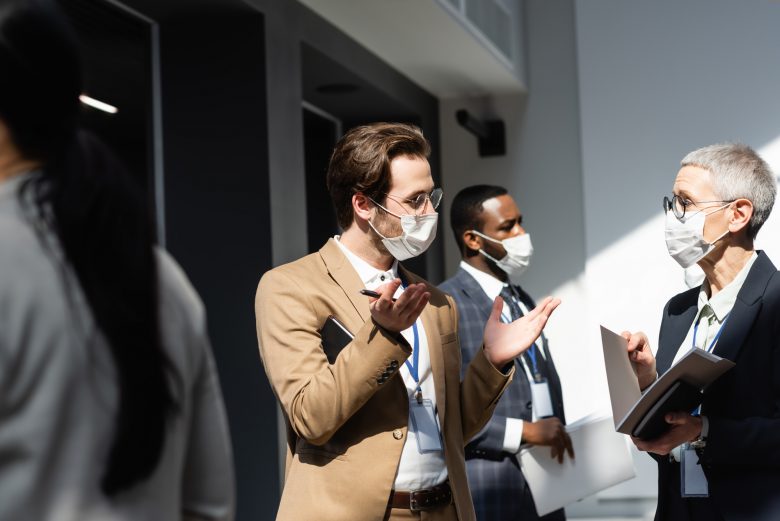Natural disasters occur. Hurricanes, earthquakes, and pandemics like COVID-19 can cause many to suffer physical and emotional losses. Small businesses can be destroyed when there was no plan in place if the worst happens. But there are ways you can help to protect your business and employees. It’s hard enough to stay afloat with a small business without the devastation of a natural disaster. Still, if you have to completely rebuild after a disaster, getting back to where you were before may be challenging, if not impossible.
Some studies have found over 40% of small businesses will permanently close after a disaster. Of the businesses that do reopen, an additional 25% will fail within the year. In the case of Covid-19, business failures may be seen as a secondary pandemic.
A little disaster preparation planning can help you get back on track quickly, so you don’t waste valuable time and money. It’s not hard to go create a disaster preparedness plan either.
What a disaster preparedness plan should look like?
A disaster preparedness plan includes:
- Eliminating any hazards or risks before an event occurs.
- A plan on how to deal with any hazard or risks that could not be eliminated.
- Determining how to and who will respond to emergency events.
- A plan for employee safety.
- A list of current assets (for insurance).
- A plan for rebuilding the business.
How a Disaster Plan Benefits
- Being prepared can reduce fear, anxiety, and losses that accompany disasters.
- Reduces the impact of the disaster.
- Saves lives.
- Faster recovery.
Steps to Your Disaster Plan
The first step in creating a disaster preparedness plan is meeting with your employees to discuss establishing a plan of action should a disaster occur at your place of business. Use this initial meeting to gather ideas from everyone and incorporate them into the disaster preparedness plan. Ideally, this meeting would occur regularly to review and update the plan. You can even practice various disaster scenarios to seek out any weak points in your plan of action. This health and safety software from Eco Online helps you ensure that you’re following all health and safety regulations.
What You Can Do Right Now
- Take an inventory of your assets. Keep this and any other important documents in a safe, dry location.
- Identify risks.
- Begin developing a preparedness plan.
Identify the Risks
Consider what disasters are going to be the riskiest for your business and its location. Is it an epidemic like COVID-19 or a natural disaster like hurricanes, blizzards, or severe storms and tornados?
Develop Your Plan
While you will want to gather ideas from as many employees as possible, it is best to establish one person as your disaster plan coordinator. They will be responsible for developing the plan with you. You will need to provide them with clear directions and expectations. Consider these questions:
- Does the designated coordinator need a supporting committee? If you have a large business with different departments, then yes.
- What are the minimums your plan requires?
The goals of your plan are the well-being of employees, workplace stability, and the ability to keep the business going. This could mean you write a comprehensive guide or just a series of reference sheets. Your plan coordinator needs to know the scope of your expectations to properly develop it.
Implement the Plan and Train Your EmployeesYour Mindset
Every employee should be involved in your companies disaster preparedness training. Practicing will allow you to identify potential problems, so you don’t have to deal with them amid a disaster. Once you have an operational plan in place, make sure everyone knows where to find the information. You can do much ahead of time, allowing you to focus on carrying out the preparedness plan should something happen.
Community Preparedness
Even though your business has a plan in place, other businesses around you may not, and their lack of preparedness could cause you harm. Hazardous material at the business next door could impact your business in the event of a storm or flooding. You can address these risks by taking the initiative to establish a community disaster preparedness plan.
What About Pandemic Like COVID-19?
Any company can experience an outbreak, and prevention is one of the best things you can do. There are guidelines you should follow to ensure business disruptions don’t take place. Some of these policies should also be followed with other diseases, like the seasonal flu.
- Encourage sick employees to stay home.
- Display posters to outline etiquette when it comes to coughing and sneezing. Also, encourage proper hygiene.
- Offer other working arrangements and support employees who are sick.
- Have policies on social distancing with partitions or barriers that keep everyone safe.
- Instruct employees to wear masks (unless they have a medical condition that prevents them from doing so.)
- Ensure surfaces are frequently cleaned.
- Conduct temperature and symptom screenings.
- Conduct a hazard assessment to see the weak points in your health and safety protocol. This keeps employees safe.
- Be diligent about checking the CDC health notices for changes in guidance and recommendations.
- If an employee tests positive for COVID-19, let everyone in the team know about the potential exposure. However, it’s important to note you have to keep the employee’s identity anonymous.
You may also need to alter your ways of conducting business. You may need to implement a means for people to order your products online or find ways to conduct sales with limited contact. Continued operation of your business may require finding ways to let employees work from home.
Whatever the potential disaster, there are ways to establish damage control measures with good planning. COVID-19 taught us the fragility of the economy. We were not prepared for the worst. But by making a plan, integrating it into your business practices, and having training sessions with role-playing, you may ultimately save your business in the future.














Pingback: Protecting Your Business When Disasters Like Covid-19 Happen – Entrepreneur – Start, Run and Grow Your Business
Pingback: Protecting Your Business When Disasters Like Covid-19 Happen » The Wordpress Article Directory